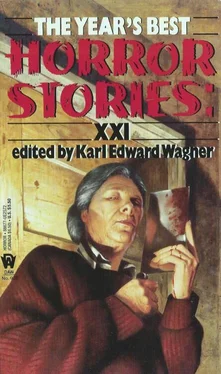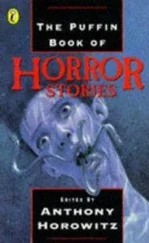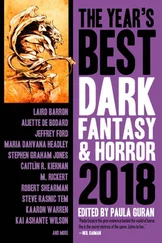“Yes,” Joshua said. Getting information from his father was a tiresome, trying thing. “The import sinks in! Did you?” His father nodded. “How do you know it worked?”
“You never heard of the Fairfax Massacre—1958? And why not? Because I prevented it. I took the blueprint that God gave me, and I prevented it. Fairfax Massacre, Bronx Butchery of 1977, Tel Aviv Crater, the Rio River of Blood—none of them took place. Because I acted.” The effort of the speech caused Benjamin to sit back in the sofa, to rest again.
“How did you do it?”
“God showed me a way. In every case, God showed me a way.” Now Joshua was uneasy. God showed him a way. Of course. If he were not himself having the visions, he would suspect that his father was crazy. He would know it. Maybe they both were crazy.
“You were seeing into the future in 1916?”
“Yes, since 1916 when I could have done so much. So much.”
Benjamin said he couldn’t speak anymore. He was obviously worn out by his efforts. Joshua helped him back to his car, rediscovering the frailness. Harlow went unbidden to the old man and kissed him good-bye. Kevin remained in the house watching a rerun of “Three’s Company” on television.
Standing naked in the bathroom with the light and fan on, Joshua was brushing his teeth. He was trying to figure out what his visions meant. Before, they had just been, but now he wondered if there was some meaning to them, some purpose behind them. And what had his father told him—if he had told him anything? The old man was so oblique. All he knew for certain was that he had visions and his father had them.
Socorro said something from the bedroom. Joshua stuck his head around the corner. “What?”
“Don’t talk with your mouth full,” Socorro said. She was reading another Harlequin Romance, leaning against a pillow propped against the headboard of the bed. Her summer nightgown had slipped high up her legs. Her right leg was bent. The shadows beneath and between the legs, as always, beckoned. Promised. Her breasts flattened comfortably in the shiny blue material.
Joshua removed the toothbrush and said, “I’ll make you talk with your mouth full.”
“Ain’t never that full, white boy!”
Joshua returned the toothbrush to the cabinet and rinsed his mouth.
Socorro had not moved. She didn’t have to move. The blue nightgown rested lightly on her brown legs. Joshua moved, slid onto the bed.
“My father says he sees into the future. God is giving him orders, and he’s changing the future. Sort of.”
“You didn’t put on your pajamas,” Socorro noticed.
“Wasted effort.”
“Kevin’s still up.”
Sometimes kids were more trouble than—no, that was not the case. But there were times they should be asleep. He walked to the hallway. “Lights out!” he yelled into the hall before closing the door. Back to bed.
“He’s getting pretty old,” Socorro said as Joshua bounced onto the bed. It took him a second to realize she was talking about his father.
“He’s talking about the same kind of visions I have. He says they’re from God. And mine are getting closer to the present.”
“You’ve got to get up early tomorrow, so if you want to, now’s the time.” Her fingers tripped down his stomach. Joshua snapped off the light and rolled to meet Socorro.
At 2:26 in the morning Joshua awoke to a startling revelation, a startling remembrance.
“Like David,” he remembered his father saying. “Like David, I have been denied the way to God.” Did that mean that the visions had deserted Benjamin? Joshua got out of bed without disturbing Socorro, who slept like the dead, put on his pajama bottoms from the closet, and walked around the quiet house.
The nightlight from the boys’ room was enough to illuminate the hallway. In the kitchen he flipped on the overhead light. His eyes stung from the brightness. No cockroaches—the exterminator must have gotten them all the last time. Joshua sat at the kitchen table after taking a drink of water from the sink to wash away the stale taste of Socorro. The clock over the sink told him the time was 2:31.
Things became warm. The dull brown and gray pattern on the table cloth changed to a flat white of building bricks. Joshua stood on the balcony of an enormous block wall dormitory building. The air was heavy and hot. August, he thought, or September. Pennants and flags blew in the distance. People in police and army uniforms spread out below him, but aside from the faint snapping of the flags, an extraordinary quiet damped everything.
Joshua noticed the semiautomatic weapon as a hooded figure darted out from and then behind a curtain. A dull, muffled pop was followed by a series of screams, weapons fire, and the crashes of breaking glass. An athlete’s tote-all flew incongruously onto the balcony and landed at Joshua’s feet. Joshua looked into the apartment to discover what he knew he would find: the littered remains of a bleeding and broken body.
1972, he realized. Munich, the Olympics.
With scarcely a break for him to recoup his strength, Joshua was pushed into a vision of three machine-gun-wielding Japanese firing on a helpless airport crowd.
A bus bomb in Israel, a synagogue bombing in Vienna.
Undisturbed by Socorro, Joshua suffered through to the end of these visions. The short, lucid interval between made them more and more terrible. Another began. They were coming more closely together, approaching the present day quickly. Maybe when they arrived, they would stop. His father’s had not, had gone into the future, but he could hope.
At 4:04 Joshua noticed the clock again. His pajama bottoms were soaked in sweat. He could barely move. He forced himself to go to the drawer under the telephone where he took out a pencil and paper and returned to the table. He wrote two pages of notes before putting his head on the table.
He awoke once around noon in his bed and was fed a bowl of chicken soup by Socorro. He couldn’t speak and fell asleep again. Around four in the afternoon Socorro tapped on his shoulder. “Your father’s here,” she said.
Joshua opened his eyes. Socorro kissed him on the forehead. “My father,” Joshua said. “How did I get here?”
“I put you to bed. Called you in sick at work, and then called your father again. I’m scared, Josh.”
“Just a couple of minutes,” Joshua said. He was feeling better, more awake at least. He threw back the blanket and sat up to get out of the bed. Dizziness drove him back. The tops and bottoms of his pajamas didn’t match. His father was here. Maybe he was, in fact, going crazy. Already gone.
Joshua heard Benjamin speaking to Socorro in the hallway outside the bedroom. They were speaking—that was something.
His father said, “Certainly it’s a mental thing. It is all in his head.”
Socorro said something that Joshua couldn’t hear.
“Just as mine were in my head,” his father continued. “There are no physical manifestations. That doesn’t mean he’s insane. Jeremiah wasn’t insane.”
Joshua expected Socorro to ask, “Jeremiah who?” Instead she said, “Not a breakdown, then?”
“No, not a breakdown. It might get worse, too. The past is one thing. There’s nothing we can do about the past, but when it turns to the future…”
The door opened and Socorro, with her back turned, said, “I think I understand.” She faced Joshua and winked a smile. “He’s awake.”
The old man took his time in moving the chair from the vanity table and placing it next to the bed. Joshua felt more feeble than his father looked.
“Giving up your religion is no easy thing,” his father said as he inched his way into the chair.
“Do you want a pillow for that?” Joshua asked. His father waved the suggestion away. Joshua sat awkwardly up on his arms and answered his father’s comment. “I gave up my belief in God. The religion part seemed to follow logically.”
Читать дальше












